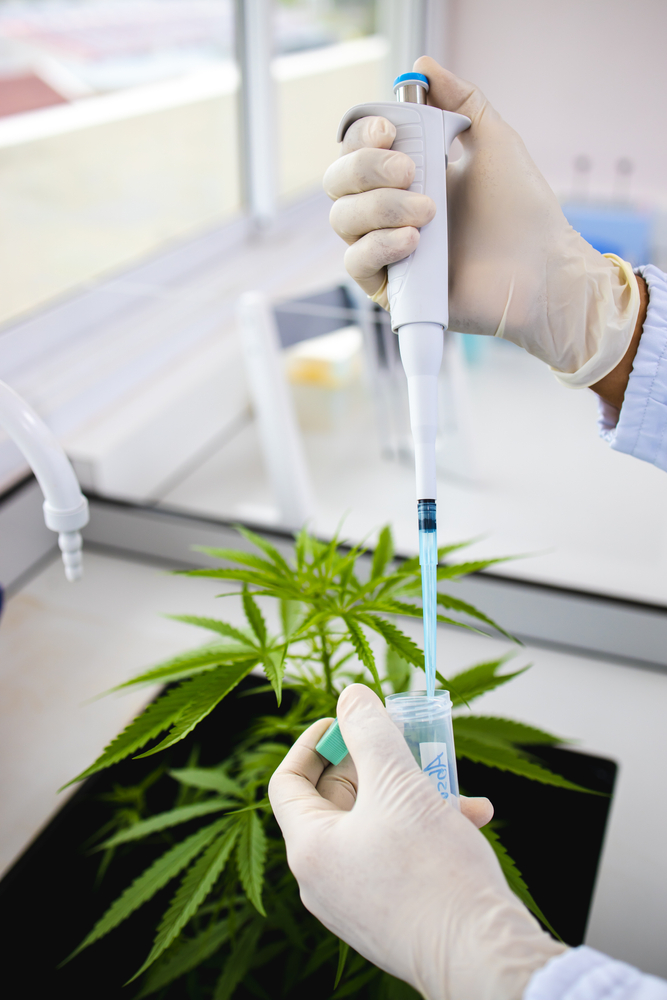One of the great challenges of Medicine in fighting chemical dependence is the patients’ refractoriness to conventional therapies. Recently, science has demonstrated the potential of cannabinoids as a safe and effective therapeutic option to be used as an adjuvant in these clinical conditions. To learn more about it, continue reading this post and get to know the scientific evidence on the relationship between cannabinoids and chemical dependence.
Prescriptive challenges in chemical dependence scenario
In general, cannabinoid therapies are still unusual in the Brazilian scenario. In relation to chemical dependence, the most recurrent drug products are antidepressants, such as bupropion and tricyclic antidepressants, and other drugs that, in parallel, also have the potential to generate dependence, such as benzodiazepines (for example, diazepam and midazolam), are present in some national guidelines for treating cocaine addiction, for example.
Dependence on alcohol, nicotine and opioids exemplifies other conditions in which refractoriness to conventional therapies – such as those based on Dissulfiram, Naltrexone, Varenicline and Clonidine – is quite common.
It is worth remembering that, for each drug product there are indications and contraindications related to the history of each patient, being the responsibility of the attending physician to be aware of these issues. However, in general, there is low efficacy, low tolerability and low compliance to the usual therapeutic arsenal for chemical dependence.
In this sense, cannabinoids appear as an interesting alternative to conventional drug products, because they combine significant therapeutic effects and low rate of adverse effects. Research on medical cannabis in this field, shows these promising results especially from the use of extracts predominant in cannabidiol (CBD), which we will talk about in the next topic.
How can cannabinoids help in the treatment of chemical dependence?
In the last decades, several scientific studies have evaluated the therapeutic potential of substances that act in the Endocannabinoid System for the management of many clinical conditions, including chemical dependence.
Cannabidiol is one of those substances that have been showing good results in regulating and modulating neurotransmitters such as acetylcholine, adrenaline and norepinephrine, in order to minimize dependence and other symptoms related to the abuse of alcohol, nicotine and other drugs.
CBD use in alcohol and opioid dependence
A 2018 scientific experiment, published by the Society for the Study of Addiction, found that the administration of CBD to mice was able to reduce boosting, motivating and relapse properties for ethanol use, suggesting the potential of this cannabinoid in the treatment of alcohol dependence.
According to that study, low doses of CBD combined with Naltrexone were more effective than using Naltrexone alone in preventing relapse among “alcohol-dependent” mice. In addition, CBD helped to minimize the symptoms of alcohol withdrawal syndrome and the daily amount of alcohol ingested.
Other studies have ratified these positive findings on the use of cannabinoids in the context of alcohol dependence, such as this research showing that the interaction of CB1 receptor antagonist with cannabinoid substances leads to a significant reduction in alcohol consumption.
There are also experimental data that relate the use of CBD to reduction in liver and neurocognitive damage in alcohol-dependent patients, regardless of the individual’s consumption history, as evidenced in this research published in the Neurotoxicity Research Journal, 2016.
In relation to opioid dependence, CBD has been shown to be effective in treatments not only for helping to control chronic pain (the main reason why people become dependent on opioid use) – thus reducing the necessary daily doses of opioids – but also, because this phytocannabinoid is able to mitigate the effects of withdrawal in those who are in the weaning process from these drug products.
CBD use in dependence to other drugs
There are already scientific studies suggesting the potential of CBD in the treatment of dependence to other drugs, such as crack, cocaine and marijuana itself. In addition to helping to control “cravings”, this cannabinoid works as a valuable anxiolytic, reducing other symptoms associated with addiction.
When interacting with the Endocannabinoid System, which is a vital modulator of neurotransmitters associated with chemical dependence, cannabidiol stimulates the gradual decrease in the user’s desire to seek feelings of euphoria resulting from drug use.
This is what this paper published in 2015 shows, containing a bibliographic review of preclinical studies which show the therapeutic properties of CBD on dependence to cocaine and other psychostimulants.
We also highlight this case study of a 27-year-old male patient with a long-standing diagnosis of bipolar disorder and daily dependence to marijuana use. The administration of CBD oil provided anxiolytic benefits, established a regular sleep pattern and prevented patient relapse, even with gradual dosage decrease.
>>> To learn more about the study, read the paper Cannabidiol Oil for Decreasing Addictive Use of Marijuana: A Case Report, by researchers Scott Shannon and Janet Opila-Lehman, published in the scientific journal Integrative Medicine on December 2015.
One of the largest challenges in the prescription of cannabinoid derivatives to treat chemical dependence remains to find proper qualification in the field, which allows doctors to incorporate these new therapeutic tools with safety, efficacy and assertiveness.
We can help you on this journey! Get in touch with us and be part of our global community of studies in Endocannabinoid Medicine, which gather in a highly qualified way, scientific knowledge and practical experience.
References
Kleczkowska P, Smaga I, Filip M, Bujalska-Zadrozny M. Cannabinoid Ligands and Alcohol Addiction: A Promising Therapeutic Tool or a Humbug? Neurotox Res. 2016.
Prud’homme M, Cata R, Jutras-Aswad D. Cannabidiol as an Intervention for Addictive Behaviors: A Systematic Review of the Evidence. Subst Abuse. 2015.
Rodrigues LA, Caroba MES, Taba FK, Filev R, Gallassi AD. Evaluation of the potential use of cannabidiol in the treatment of cocaine use disorder: A systematic review. Pharmacol Biochem Behav. 2020.
Shannon S, Opila-Lehman J. Cannabidiol Oil for Decreasing Addictive Use of Marijuana: A Case Report. Integr Med (Encinitas). 2015.
Viudez-Martínez A, García-Gutiérrez MS, Navarrón CM, Morales-Calero MI, Navarrete F, Torres-Suárez AI, Manzanares J. Cannabidiol reduces ethanol consumption, motivation and relapse in mice. Addict Biol. 2018.
Zaleski et al. Diretrizes da Associação Brasileira de Estudos do Álcool e outras Drogas (ABEAD) para o diagnóstico e tratamento de comorbidades psiquiátricas e dependência de álcool e outras substâncias. Revista Brasileira de Psiquiatria. Associação Brasileira de Psiquiatria – ABP, v. 28, n. 2, p. 142-148, 2006.




